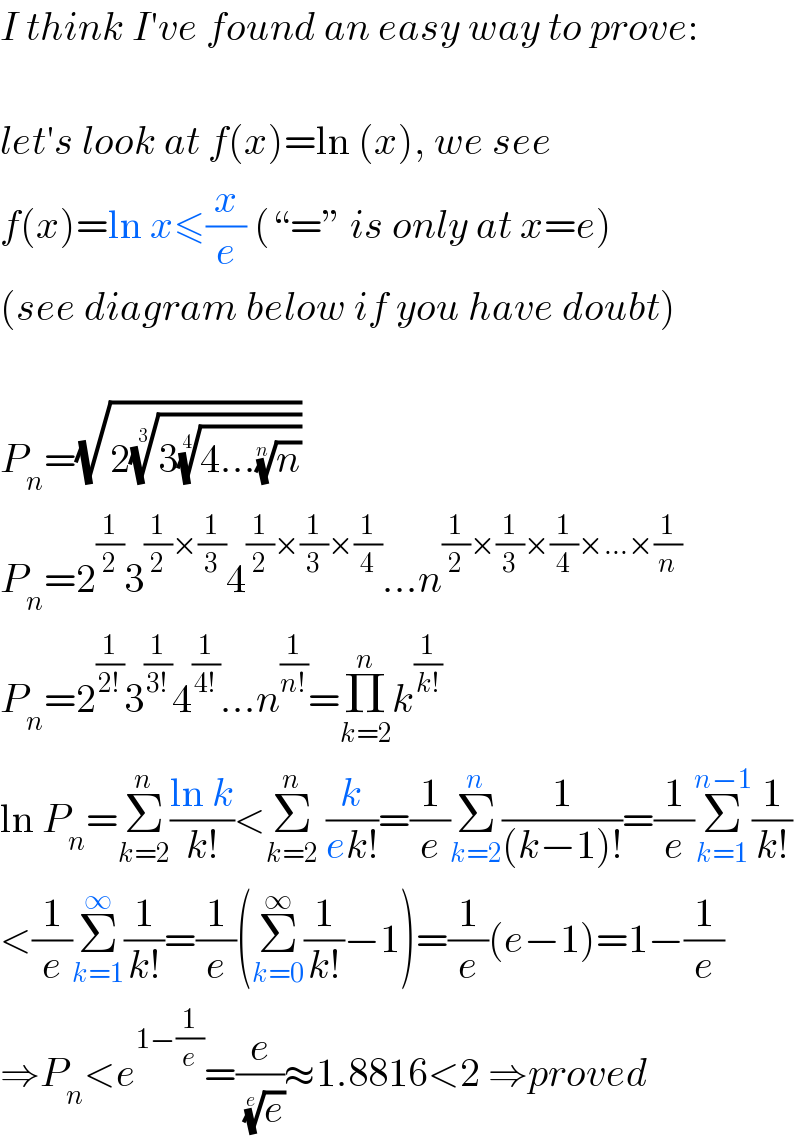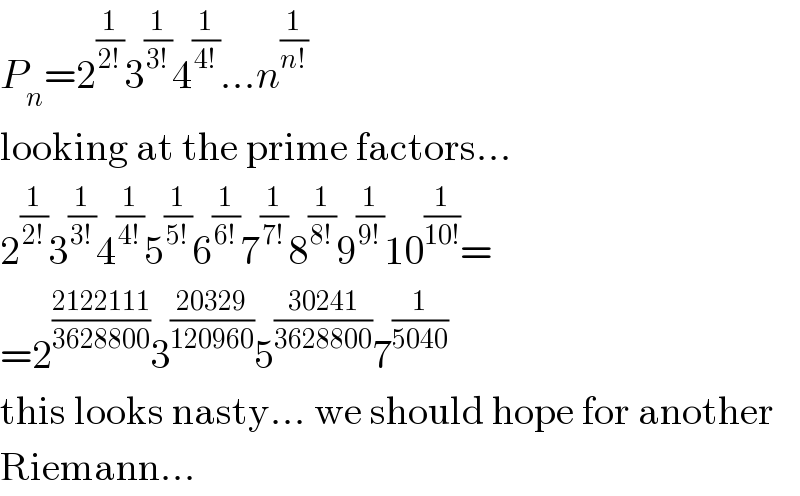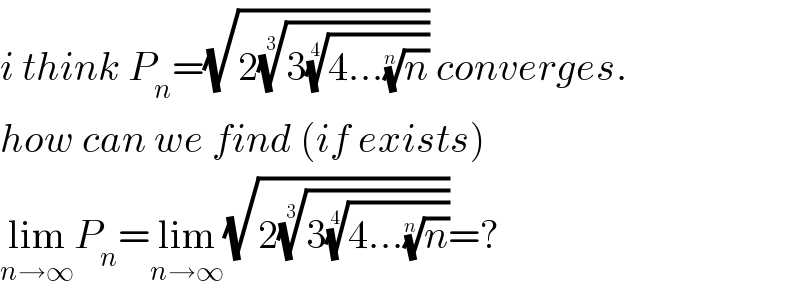
Question and Answers Forum
Question Number 79932 by mr W last updated on 29/Jan/20

Commented by mr W last updated on 29/Jan/20
![[Q79861 reposted]](Q79933.png)
Answered by mr W last updated on 29/Jan/20

Commented by M±th+et£s last updated on 29/Jan/20

Commented by MJS last updated on 29/Jan/20

Commented by MJS last updated on 29/Jan/20

Commented by TawaTawa last updated on 29/Jan/20

Commented by mr W last updated on 29/Jan/20

Commented by mr W last updated on 29/Jan/20

Commented by mr W last updated on 29/Jan/20

